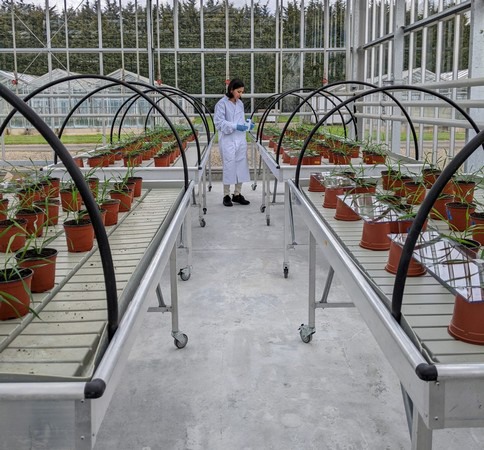Scientific methods to support the next generation of Septoria trials have been screened and optimized by scientists at CHAP’s Advanced Glasshouse Facility. The team instigated the work to ensure the most effective methodology was being used when infecting wheat plants with the fungal disease Septoria (Zymoseptoria tritici).
This was in preparation for future projects at the facility – a fully-controlled glasshouse for the testing of plant protection products, particularly biopesticides.
CHAP’s Innovation Technical Lead, Dr. Alex McCormack, said: “As the Septoria isolates used during the work were from CHAP’s National Reference Collection (NRC), this is a great example of how our different facilities can connect together to address an industry problem. In this case, the screening of new biopesticides.
“It’s important that we use trusted scientific protocols and methodology to deliver best-in-class results for our project and commercial partners. Expanding our knowledge in this way is part of our continual commitment to excellence.”

To conduct the work, the isolates were examined for pathogenicity towards wheat seedlings in CABI’s laboratories and growth rooms. From these isolates, a selection was then applied at a larger scale in the Advanced Glasshouse Facility using different inoculation methods. Results showed successful infection, helping to optimize methods for the future.
Technical Liaison Officer Lucy Plowman oversees the Advanced Glasshouse Facility, which is based at Stockbridge Technology Centre (STC). She said: “The main purpose of the facility is to conduct controlled and customized trials on a range of crops, including those grown under deep-water hydroponic systems, and in the field, including precision spraying. So robust scientific protocols such as these underpin the work that we do.
“We look forward to our next project to help discover the next generation of biopesticides and novel plant protection products.”
For more information: CHAP
CHAP
enquiries@chap-solutions.co.uk
www.chap-solutions.co.uk
